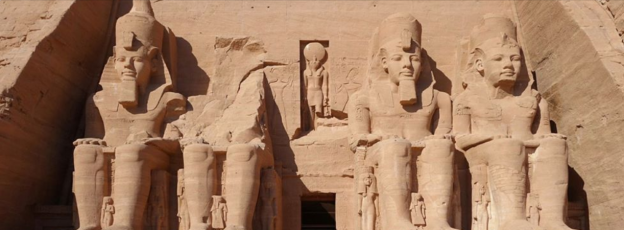Summary
In the latter part of Exodus 4, we see Moses’ faithful response to God’s call in his return to Egypt to rescue God’s people. But before Moses can see God’s promises begin their fulfilment, he must ensure his own life is fit for service as the mediator between God and his people.
Our passage explained
v18-23
After Moses’s encounter with God at the Burning Bush, Moses prepares to return to Egypt. Following the customs of his day, he asks and receives permission from his Father-in-law to return to “my brothers in Egypt to see whether they are still alive” (v.18). In forty years since Moses’ exile, perhaps the Egyptian genocide against God’s people has harmed his family.
Perhaps understanding that Moses will still fear for his life due to his earlier slaying of an Egyptian (2:12), God encourages Moses that he can go because “all the men who were seeking your life are dead” (v.19). Moses responds in faith, packing his two sons and wife onto a donkey and carrying the staff which God empowered as a symbol of his presence with Moses (v.20).
As he sets out, God encourages and warns Moses of what awaits him. God commands Moses to perform miracles before Pharaoh, as proof of Moses’ calling and God’s demand (v.21). But he also warns Moses that God “will harden his heart, so that he will not let the people go” (v.21).
Pharaoh’s hardened heart will stop him from releasing the Israelites, who God identifies corporately as “my firstborn son” (v.22). God’s people are dear to him, his children, with whom he has an ongoing relationship. Moreso, they hold a position of special status to God, as the firstborn. If Pharaoh will not let God’s son go, then “behold, I will kill your [Pharaoh’s] firstborn son” (v.23).
v24-26
But while Moses has responded to God’s call to ministry, he must ensure his life is fit for the role he has been called to. As a father, he was responsible for ensuring that his sons were circumcised in faithful obedience to the covenant made with Abraham (part of the Covenant of Grace). Failure to do this resulted in being “cut off” – ritual and usually fairly prompt actual death (Gen 17:14).
On the return journey at a way station, God seeks Moses’ death (v.24) for a failure to circumcise one of his sons, possibly his younger son Eliezer. Moses’ wife must step in to save Moses’ life by circumcising her son, since Moses cannot. Her response “Surely you are a bridegroom of blood to me!” suggests she may not have approved of circumcision of her sons (and thus the delay to one of their two sons), but to save Moses must shed blood (vv.25-26).
v27-31
Previously, God promised Moses that his brother Aaron would be his spokesman (4:14). In verse 27, we see God’s fulfilment of his promise to Moses by sending Aaron out to meet Moses on the way. Aaron accepts Moses’ calling and their roles, and together they gather the elders of Israel to reveal God’s calling of Moses as his answer to their prayers (vv.28-30).
Their response, and that of the Israelites, is to believe the message of God through Moses and Aaron. They respond to God’s hearing their prayers by bowing down and worshipping God (v.31). These verses show God’s promises to Moses fulfilled (3:18). Seeing God’s words coming true before his eyes would have reassured Moses for the greater battle coming – with Pharaoh.
Our passage applied
Likewise, God’s response to the anguish and prayers of God’s people encourages us to continue to seek God’s help. Our relationship with God does not change whether we are undergoing trials or blessings. God’s people hold a special status, we are his “firstborn son” by adoption, children of God whom he delights to protect and bless with a beautiful inheritance (Romans 8:14-17).
Despite the troubles which lie before us, we can have confidence in our status as God’s beloved sons and daughters. God’s further message to Moses as he left for Egypt encouraged him to trust God; that the outcome was certain. The final victory of God over sin, death, and all who oppose him is no less certain.
But we must also heed the warning presented in these verses. Before Moses could serve as God’s mediator, he had to ensure his life was fit for service. His neglect of circumcision, the covenant sign of admission administered to his son, even after having come into the direct presence of the covenant-keeping God, was a roadblock to his calling, and nearly led to his death.
We too are called to live holy lives in response to God’s calling of us (1 Peter 1:14-16). Since God loves us and has adopted us as his children, we ought to glorify God by loving him and doing what he commands. While we fall short of this standard constantly, thankfully we have a mediator in Jesus Christ who fulfilled all righteousness for us and was cut off for our salvation, to save us from death.
Resources
Questions? Please contact us. Inspired? Come and worship with us on Sundays.


